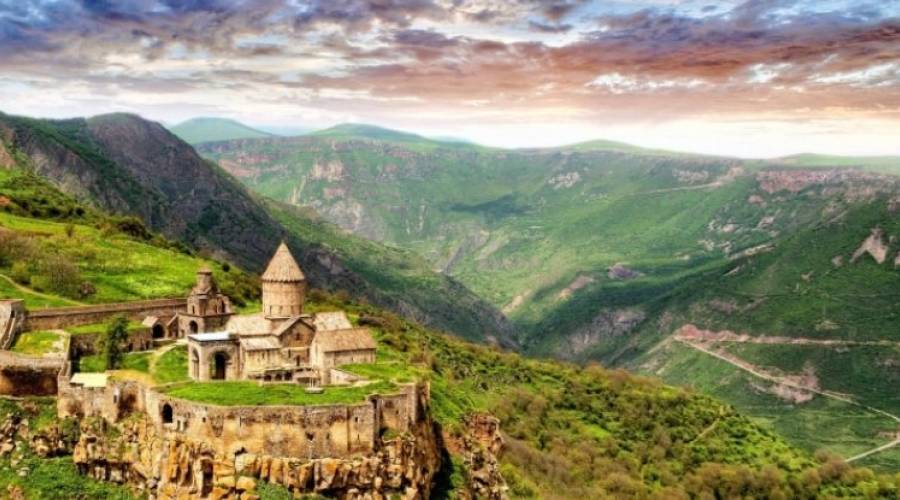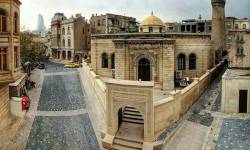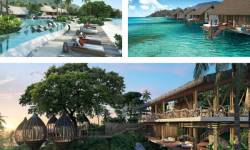
Karabakh Unveiled: Comprehensive Tourism Development Strategy
Liberated Karabakh in Azerbaijan holds immense tourism potential. A strategic approach can unlock diverse attractions and showcase cultural resilience.
The Karabakh region of Azerbaijan holds untapped potential for tourism development across various niches. By strategically investing in infrastructure, preserving its cultural heritage, and promoting sustainable tourism practices, Karabakh can position itself as a must-visit destination for a diverse range of travelers. As the world increasingly seeks unique and authentic travel experiences, Karabakh stands ready to shine as a jewel waiting to be discovered.
Nestled in the South Caucasus region, the Karabakh region of Azerbaijan is a hidden gem with immense tourism potential. With its rich cultural heritage, stunning landscapes, and historical significance, Karabakh is poised to become a top tourist destination. In this blog, we will explore the diverse opportunities for tourism development in the region and discuss the types of tourism that can attract visitors from around the world.
Cultural Tourism at Karabakh
Karabakh boasts a deep and diverse cultural heritage, shaped by centuries of history. The region is home to ancient fortresses, historic monuments, and traditional villages that provide a glimpse into its storied past. Initiatives to preserve and showcase this cultural wealth through museums, heritage sites, and cultural festivals can attract tourists interested in history and anthropology.
Adventure Tourism of Karabakh
For the more adventurous traveler, Karabakh offers a plethora of outdoor activities. The rugged landscapes, including mountains, valleys, and rivers, provide an ideal setting for activities such as hiking, trekking, rock climbing, and even winter sports during the colder months. Developing infrastructure for adventure tourism, including well-marked trails and activity centers, can tap into the growing market of thrill-seeking tourists.
Ecotourism in Karabakh
With its untouched natural beauty, Karabakh has the potential to become a haven for ecotourism. Conservation efforts to protect the unique flora and fauna, coupled with sustainable tourism practices, can attract nature enthusiasts. Establishing eco-friendly accommodations, promoting responsible tourism, and organizing nature tours can contribute to the preservation of the environment while providing a memorable experience for visitors.
Culinary Tourism
Food is often a central aspect of any travel experience, and Karabakh's cuisine is a reflection of its diverse cultural influences. Traditional dishes, made from locally sourced ingredients, can become a focal point for attracting culinary enthusiasts. Establishing culinary tours, cooking classes, and promoting local gastronomy can create a niche market for those looking to explore the region's flavors.
Historical Tourism of Karabakh
Given its historical significance, Karabakh can appeal to tourists interested in understanding the geopolitical context of the region. Museums, historical trails, and guided tours can provide insights into the conflicts and resolutions that have shaped the area, offering a unique perspective for history enthusiasts.
Wellness Tourism
In a fast-paced world, wellness tourism is on the rise. Karabakh's serene landscapes and potential for spa resorts can cater to those seeking relaxation and rejuvenation. Developing wellness centers, hot springs, and promoting the region as a peaceful retreat can attract tourists looking for a holistic travel experience.
The recent liberation of Karabakh's cities and villages from the decades-long occupation by Armenian forces marks a historic turning point for Azerbaijan. As the country embraces its newly regained territories, there lies an incredible opportunity for comprehensive tourism development. In this research approach, we will delve into each liberated area - Shusha, Agdam, Khojali, Kalbajar, Fuzuli, Khojavend, Gubadli, Zangilan, Lachin, Khankendi, Jabrayil - and explore the diverse types of tourism that could be cultivated to showcase the rich landscapes and cultural heritage of these regions.
Shusha: The Cultural Capital of Karabakh
- Cultural Tourism: Shusha is renowned for its historical significance and cultural heritage. Restoration of historic sites, museums, and art galleries can attract visitors interested in exploring Azerbaijan's cultural roots.
- Music and Arts Tourism: As the cultural heart of the region, Shusha could become a hub for music and arts festivals, celebrating Azerbaijan's traditional music, dance, and visual arts.
- Historical Tourism: Guided tours of Shusha's historical landmarks, including the Shusha Castle and Yukhari Govhar Agha Mosque, can provide insights into the city's rich past.
Shusha shares parallels with Tbilisi, Georgia, celebrated for its rich cultural heritage. The historical significance and architectural beauty of Shusha position it as a potential cultural hub akin to Tbilisi. For the gradual development phase, initiating the restoration of key landmarks like the Shusha Castle and Yukhari Govhar Agha Mosque is recommended. Additionally, hosting cultural events featuring traditional Azerbaijani music, dance, and art can enhance Shusha's allure. Collaboration with international organizations will provide valuable expertise in heritage preservation.
Agdam: The Ghost City
- Post-Conflict Tourism: Agdam, with its eerie abandoned buildings, presents a unique opportunity for tourists interested in post-conflict recovery and reconstruction efforts.
- Cultural and Historical Tourism: Interpretation centers and guided tours can shed light on Agdam's history and its role in the conflict, providing a somber but educational experience.
Drawing a comparison with Pripyat near Chernobyl, Ukraine, Agdam presents unique post-conflict tourism opportunities. It can evolve similarly, serving as a canvas to illustrate the impact of conflicts on urban landscapes. The gradual development phase should commence with safety assessments and cleanup efforts. Developing guided tours focused on post-conflict recovery, involving the local community, is crucial. Establishing educational programs will raise awareness about the region's history.
Khojali: Remembering the Tragedy
- Memorial Tourism: Develop memorials and educational sites to honor the victims of the Khojali tragedy, attracting visitors who seek to understand and commemorate the historical events.
- Cultural Tourism: Showcase Khojali's cultural heritage through events, exhibitions, and storytelling to emphasize the resilience of the local community.
Khojali can find inspiration in cities like Hiroshima, Japan, where tragedy transformed into a message of peace and remembrance. For the gradual development phase, creating a memorial complex to honor the victims is recommended. Collaborating with international organizations to share stories through exhibitions and educational programs will add depth. Developing guided tours that sensitively narrate the historical events will contribute to a meaningful experience.
Nature's Bounty
- Ecotourism: These regions boast diverse landscapes, from mountains to valleys. Develop hiking trails, wildlife sanctuaries, and camping sites to attract nature enthusiasts.
- Adventure Tourism: Activities like mountain climbing, horseback riding, and off-road adventures can capitalize on the natural terrain and breathtaking scenery.
- Agro-tourism: Promote the agricultural richness of these areas, offering tours to local farms, vineyards, and traditional Azerbaijani villages.
Comparatively, these regions echo the allure of the Swiss Alps or the Canadian Rockies, emphasizing their potential for ecotourism and adventure activities. The gradual development phase should involve identifying key natural attractions and developing infrastructure, such as hiking trails, camping sites, and adventure sports facilities. Promoting sustainable practices and collaborating with experienced eco-tourism organizations will enhance the appeal.
Khankendi: Rebuilding the Capital
- Urban Tourism: As the administrative center of the region, Khankendi can develop urban tourism by showcasing modern infrastructure, business centers, and cultural hubs.
- Business and Conference Tourism: Develop conference facilities to attract business events, fostering economic growth and creating networking opportunities.
In comparison to post-war cities like Beirut, Lebanon, Khankendi's rebuilding phase offers the potential to transform into a vibrant urban center. For the gradual development phase, initiating infrastructure development, focusing on urban renewal and modernization, is crucial. Attracting businesses with incentives for establishing offices and promoting cultural events and festivals will revitalize the city's spirit.
Overall Gradual Development Strategies:
- Infrastructure Development: Prioritize essential infrastructure for accessibility and safety.
- Community Engagement: Involve local communities in planning to ensure economic and cultural benefits.
- International Collaboration: Seek partnerships with organizations and neighboring countries.
- Marketing and Promotion: Implement a phased marketing strategy with regional and global outreach.
- Sustainable Practices: Emphasize the preservation of natural and cultural assets.
- Educational Programs: Develop initiatives to deepen appreciation for the region's history and culture.
By adopting a phased and comprehensive approach, Azerbaijan can unlock the tourism potential of its liberated lands, fostering diversity and sustainable development in the regions. The liberation of these territories presents Azerbaijan with a unique chance to shape a sustainable and diverse tourism industry. By embracing cultural, historical, natural, and urban tourism, the liberated lands can become a testament to the resilience and rich heritage of Azerbaijan, drawing visitors from around the world.






